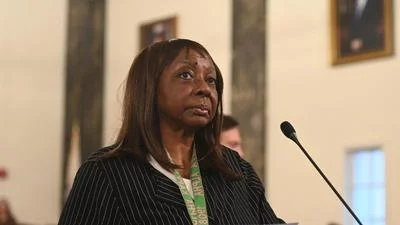Chicago's recently implemented 7-cent tax on shopping bags is a greed measure, not a green one, a public policy group co-founder argues.
Pat Hughes of the Illinois Opportunity Project claims the tax takes advantage of Chicago consumers — especially those who can't afford it — and does little to help the environment, which was said to be its intent.
“The city is saying we really want to protect the environment, and the city has no chance to impact the environment: t’s just too small to impact the environment," Hughes told WVON radio's Dorothy Tucker.
The tax, which went into effect this winter, replaced the city's ineffective ban on lightweight plastic bags. Now, retail customers who do not bring their own bags are charged 7 cents per plastic or paper bag they require.
Of every 7 cents collected, 2 cents goes back to the retailer to help order more bags.
Hughes said he wasn't surprised that there had been many problems in the first months of the tax.
“The implementation is not going correctly because it was passed very quickly, and it’s hard for retailers to keep up," he said.
Hughes said many retailers are calculating the tax incorrectly and are unsure of how to properly implement it.
Tucker told Hughes she counts every penny after shopping now. He said that was wise, but the real issue is that the tax hurts the needy the most and doesn't affect the wealthy.
“They don’t care about poor people," he said. "They always suffer the most.”
Of course, the other problem is that the tax doesn't do much for the environment, Hughes said.
“What they are really doing is using a virtue policy to find another way to tax people," he said. “They don’t care about the environment; they just want to collect the dollars.”
What's worse, Hughes said, is that this is just the beginning.
“It’s starting at 7 cents," he said. "As soon as the government feels they got away with that it won’t be long until that goes up to 10 or 12; that’s the nature of these things.”
.jpg)





 Alerts Sign-up
Alerts Sign-up